Introduction
Starting the process of selling a restaurant marks a shift towards seizing fresh chances and expanding horizons. It involves groundwork and thoughtful strategies coupled with a thorough grasp of market trends. This piece explores the actions needed for a triumphant sale. From readying your establishment and evaluating its worth, to compiling essential paperwork and promoting it effectively.
It also touches upon elements of negotiation and legal aspects while highlighting typical mistakes to steer clear of when selling a restaurant successfully involves understanding these key points for a smooth transition, into future prosperity.
Preparation Steps for Selling a Restaurant
Before you decide to sell your establishment on the market for buyers to consider acquiring it from you, it's crucial to make sure that you and your business are well prepared for this significant step ahead of time. Begin by dedicating some time to consider why you wish to sell the establishment and ensure that your motivations correspond with your objectives and dreams. Next carefully assess how your restaurant is currently running by looking at its performance customer base and overall position in the market. For example there is a popular burger joint in Oxford that has been around for eight years occupies a prime location and faces minimal competition. All factors that can make it an appealing investment option, for potential purchasers. To maximize efficiency during the sales process and showcase your business strengths to potential buyers it's crucial to grasp these elements beforehand ensuring a seamless and prosperous sale.
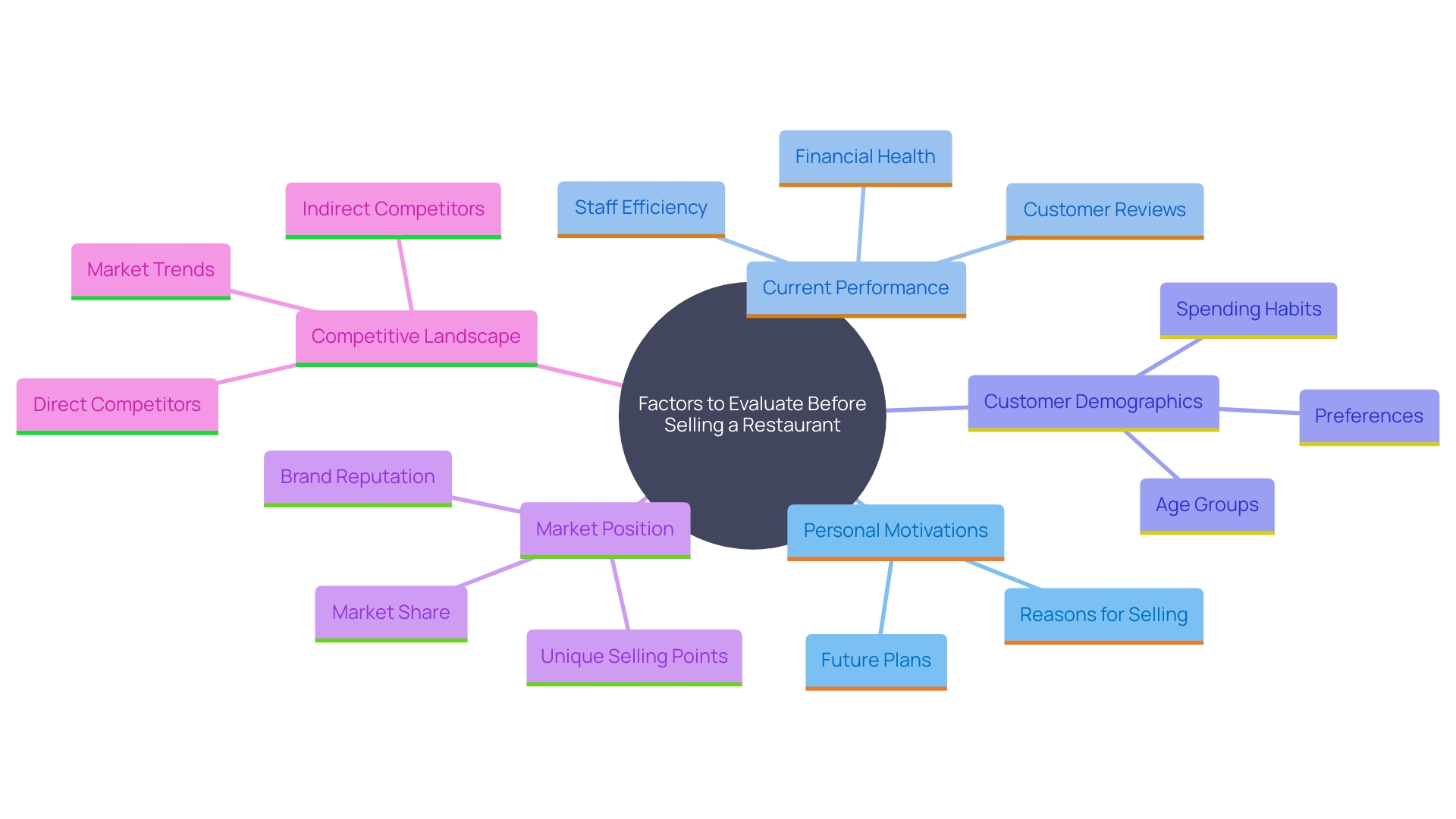
Determining the Value of Your Restaurant
Establishing a worth for your establishment is an essential part of getting ready to sell it seamlessly and effectively. Consulting with an appraiser who specializes in the food service industry can help you arrive at an accurate assessment by considering key elements like income levels, profit margins, location factors and market trends. In a competitive field like the food service industry, it's important to consider the effects of rising food costs and labor shortages that can impact your overall earnings. For instance casual eateries typically see profit margins and attract a large customer base thanks, to their laid back atmosphere and affordable pricing. Knowing these factors will not assist you in establishing a competitive rate but also prepare you to engage in negotiations effectively with potential purchasers. Based on a study conducted by the National Restaurant Association it is evident that 60 percent of consumers presently opt for delivery or takeout services at once weekly—a clear indication of the significance of adapting to market shifts. By factoring in these aspects you are positioning your restaurant for a sale and guaranteeing a favorable result.
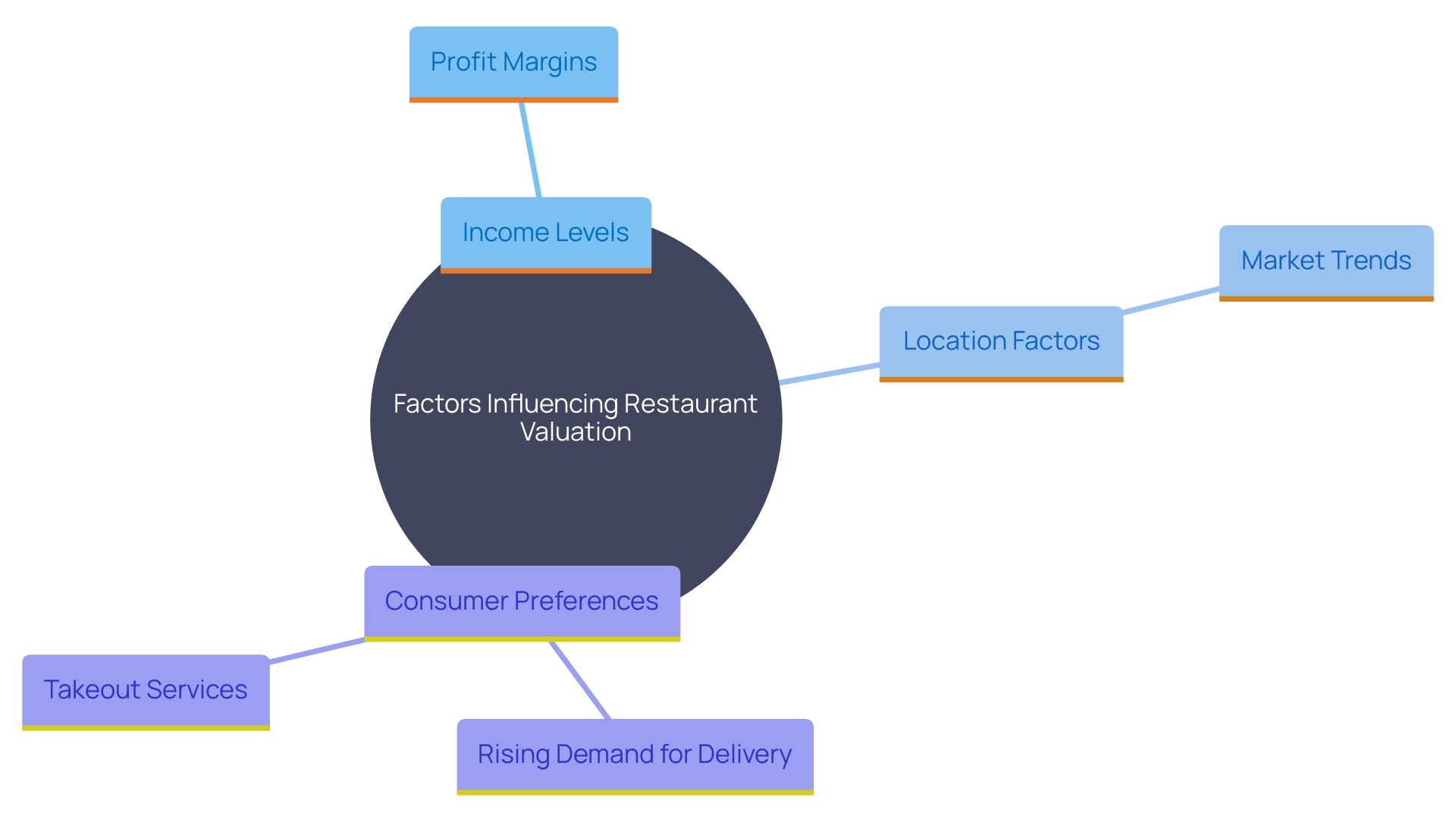
Gathering Necessary Documents and Information
Having all the necessary paperwork prepared can really speed up the process of selling your company. Make sure to gather documents like detailed financial records, tax filings, leasing agreements, employee contracts and operational manuals. Moreover think about including, in depth forecasts, key client contracts and proof of intellectual property to boost the worth of your business. Providing purchasers with comprehensive documentation builds trust and demonstrates your commitment to openness, which can significantly facilitate a quicker sale. A evaluation of your earnings integrity and financial well being, in a Quality of Earnings (QE ) assessment can provide potential buyers with valuable insights to support their decision making process by showcasing the stability and trustworthiness of your financial performance.

Marketing Your Restaurant for Sale
'Crafting a marketing gameplan is essential in pulling in the ideal clientele to your eatery establishment. Building upon avenues such as digital directories, social platforms and professional circles can vastly expand your visibility and capture greater attention. An illustrative case, in point is Spice Hubs strategy that encompasses its website, social channels, email communication, newspaper ads, TV spots and other mediums to showcase its menu offerings to a broad demographic.'.
It's essential to highlight what distinguishes your establishment from others. Emphasize attributes such as the location, the demographic it appeals to, and its standing to enhance its attractiveness. Take Spice Hub as an illustration; they have compiled a menu that caters to varied tastes, ensuring there is something for all. This approach not only attracts a broad spectrum of patrons but also fosters return visits.
'To achieve success in advertising efforts effectively combines techniques for the best outcome possible. Social media stands out as a tool in this endeavor. Utilizing captivating and edited food images can attract potential patrons. Showcasing behind the scenes glimpses of the kitchen and introducing chefs helps establish a bond with your audience. As reported by OpenTable, the dining sector experienced an 8% rise in revenue year due to strategic marketing campaigns and pricing tweaks.'.
Furthermore " creating an experience is crucial." As stated by B. Joseph Pine II and James H.Gilmore, "an experience is created when services function as the foundation and goods act as instruments to engage individuals in a manner." Hence " crafting a dining experience can differentiate your restaurant from rivals."
Essentially speaking a planned marketing strategy doesn't just boost exposure but also improves the chances of getting valuable opportunities. By emphasizing selling points and employing different marketing platforms, you can attract both patrons and investors, ensuring the growth and success of your eatery.
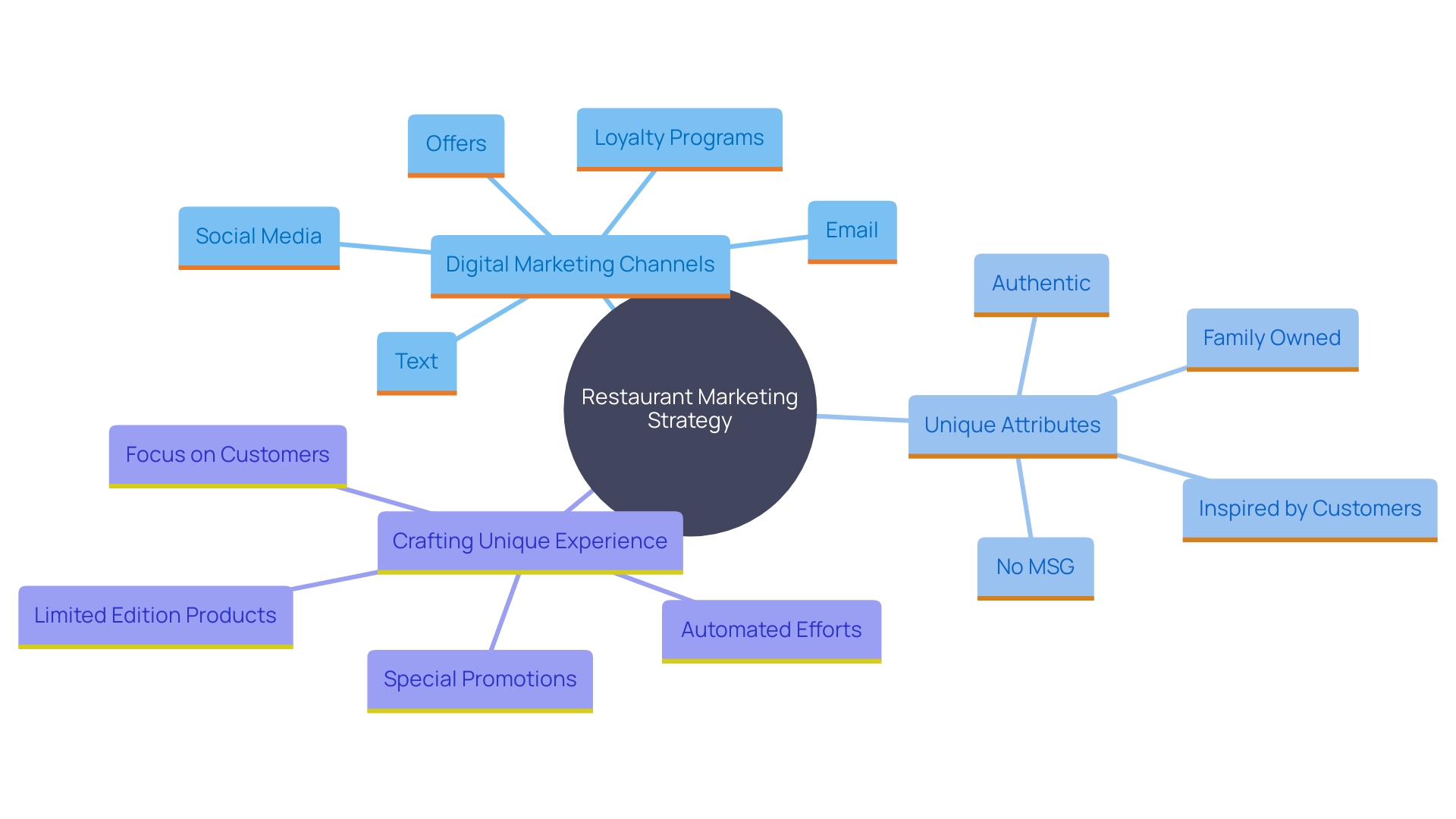
Negotiating and Closing the Sale
When you capture the interest of customers and begin discussing agreements with them is when the real work starts in sales strategies that can make or break a deal – it's more than just bargaining over prices and terms but about demonstrating the true value of your business to! Do your homework by diving into research and knowing what your market and clientele desire in order to be prepared for any unexpected challenges that arise during negotiations, as situations rarely unfold as planned!
Stay composed. Don't let yourself be manipulated in someone elses plans.The key is to check all details and uncover any possible risks involved in the situation. Opt for an earn out agreement to ensure everyone's interests are, in sync. Minimize uncertainties. Be cautious of renegotiation tactics used by buyers who may attempt to change the terms after an initial agreement is made.
In every step of the way. In all interactions with clients, emphasize the importance of fostering strong connections that lead to repeat transactions and uphold customer happiness as a top priority. After reaching an understanding ensure that every aspect is carefully ironed out. Create a sales agreement that distinctly lays out all conditions setting the stage for a smooth finalization and laying the groundwork for lasting partnerships, with clients. 'Return commerce and successful transactions serve as key signs of fruitful negotiations.'.

Legal and Tax Considerations When Selling a Restaurant
Comprehending the tax implications of selling your eatery is essential to guarantee a seamless transition process. It's important to seek advice from financial experts early on to grasp any responsibilities such as taxes and regulatory obligations. Dealing with these matters in advance can prevent any issues and optimize your financial gains from the transaction. As, per the National Restaurant Associations guidelines; following laws and fostering a positive work environment are key aspects of a successful business handover. Getting advice, from experts can help you understand forecasts better and clarify the roles and responsibilities involved in meeting industry regulations and ethical standards so that your choices reflect well on your brands image and values. Being well prepared and knowledgeable allows you to confidently handle the intricacies of selling your establishment and aim for outcomes.
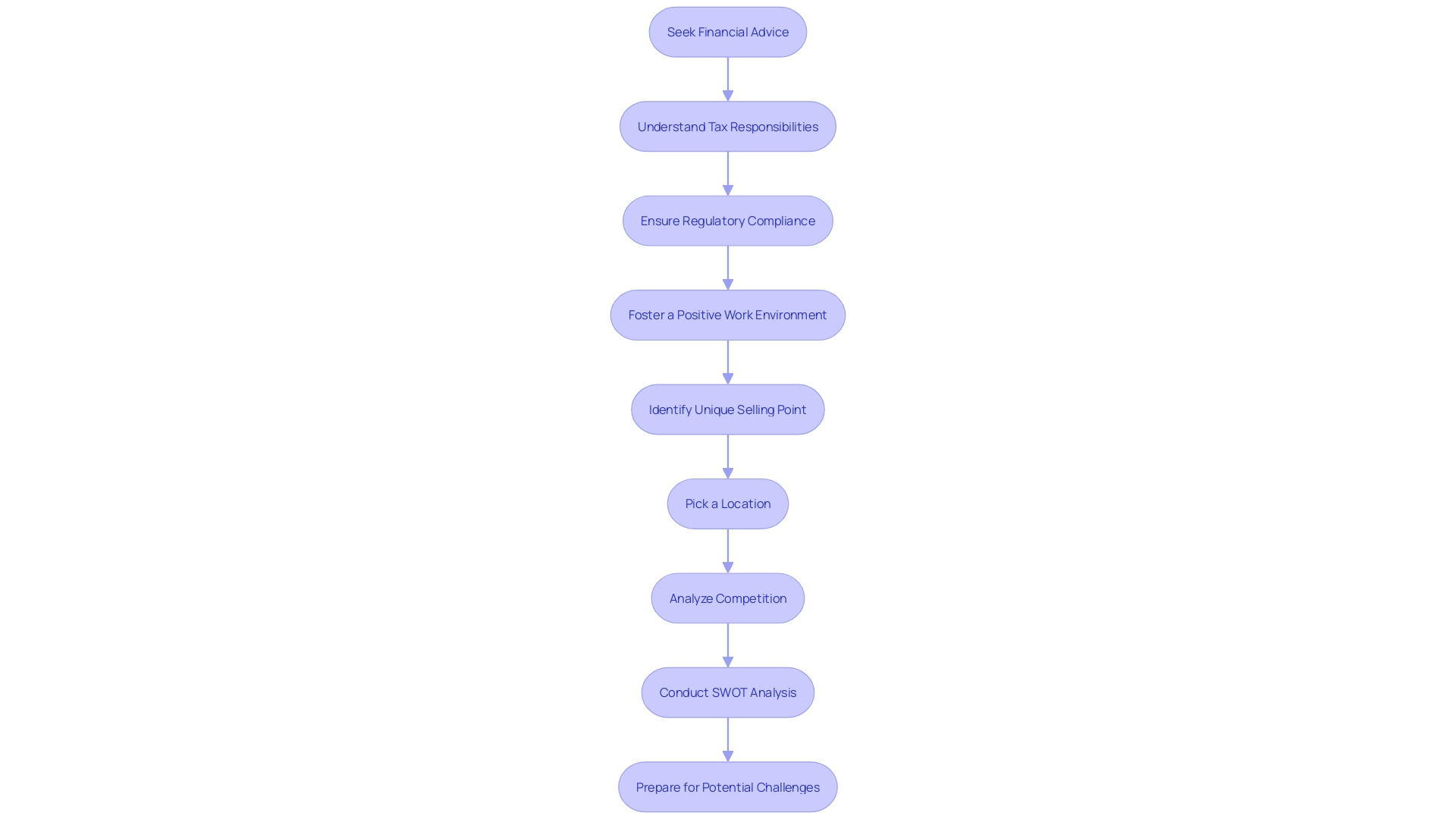
Common Mistakes to Avoid When Selling a Restaurant
Steering clear of mistakes in the selling journey can greatly influence your outcomes positively. Setting a high price for your eatery might discourage potential buyers and extend the time it takes to sell. Data from the market indicates that restaurant transactions rose by than 8% in the previous year due mainly to alterations in prices and some expansion, in units. Precisely determining the price of your venture helps potential purchasers recognize its worth and increases their likelihood of showing interest.
"It's important to invest time in planning and promoting your venture for success. It's essential to have a strategy in place with precise financial forecasts and up-to-date financial records to draw the attention of potential buyers. As suggested by Doug Bend from Bend Law Group P.C., it's wise to ensure you have a non-disclosure agreement in place before divulging sensitive information to safeguard your enterprise from rivals who could exploit the data.".
Engaging well with buyers is also crucial for success in sales endeavors as misinterpretations could result in missed chances; hence ensuring open and honest communication is key in this process according to insights from Nanxi Liu of Blaze. Tech who emphasizes the necessity of clearly stating your price goals before deciding on the next steps, in a deal negotiation.
Studying the successes of brands like Popeyes in markets can offer valuable lessons for your own strategy when selling your restaurant business. Careful planning and steering clear of typical mistakes are key, to a smooth and successful sale process.
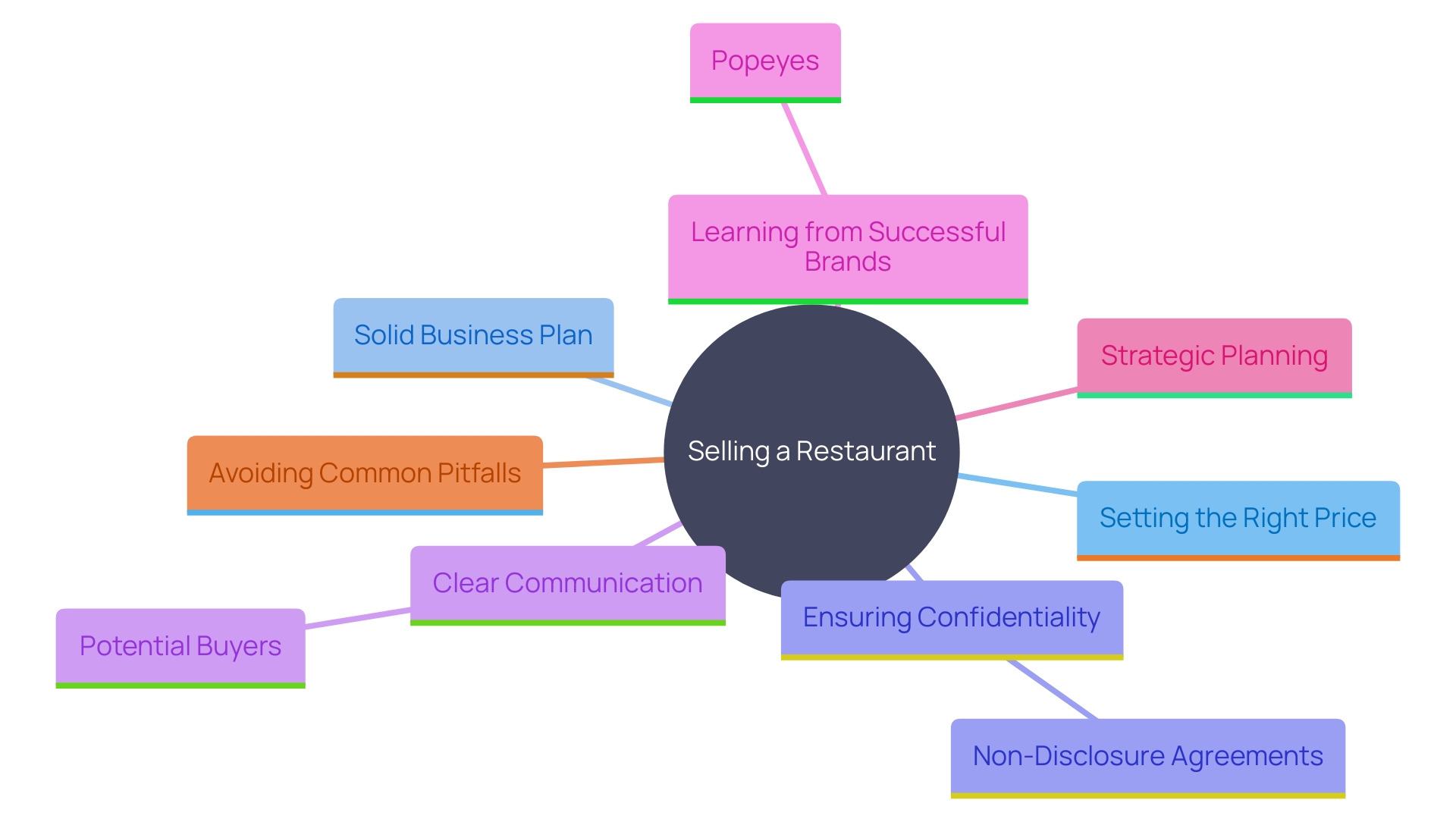
Conclusion
Selling a restaurant marks a change that brings new chances into play, for the future ahead.On this journey of selling a restaurant it is crucial to start with preparation.This involves getting a grasp of why you're selling and thoroughly evaluating how the restaurant is currently performing.By acknowledging the points and market standing of the business sellers are able to position their establishment in a way that draws in potential buyers effectively.
Assessing the worth of a restaurant is a process that involves evaluating multiple aspects such as financial performance and market dynamics diligently. Collaborating with experts in restaurant valuations can offer valuable perspectives to ensure that the pricing is in line, with industry norms and meets buyer expectations. Moreover Assembling all essential paperwork promotes openness and trustworthiness resultantly increasing the attractiveness of the establishment to purchasers.
Promoting the restaurant effectively is crucial for drawing in the crowd and making a lasting impression on potential customers especially in a crowded market, like todays dining scene.
When it comes to closing a sale having a good grasp of the market and keeping up clear communication are key factors.
Understanding the tax consequences is crucial to ensure a seamless transition process when selling a business or property asset smoothly and efficiently consulting with financial professionals can help avoid any issues that may arise and maximize financial outcomes as well as steer clear of typical mistakes, like setting prices too high or not planning adequately will result in a more positive selling journey.




